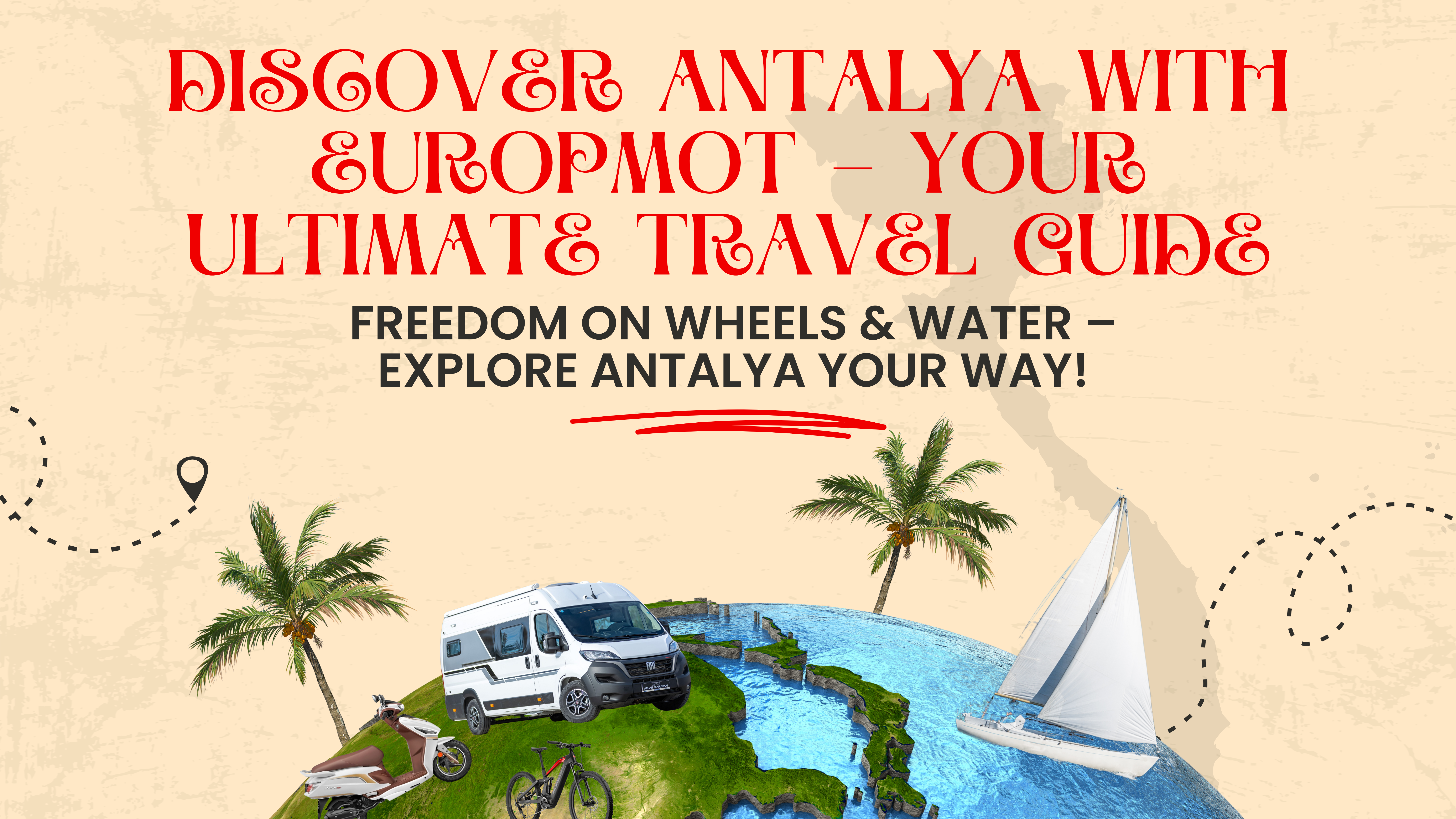Discover Antalya with Europmot – Your Ultimate Travel Guide
Welcome to the Europmot Blog, your go-to resource for exploring Antalya on two wheels, four wheels, or even on the water! Whether you’re looking for the best motorcycle rental, bicycle rental, caravan rental, car rental, or boat rental in Antalya, we’ve got you covered.
Our blog is designed to help you make the most of your trip, with expert guides on the best routes, must-visit destinations, and top travel tips. If you’re a traveler searching for Antalya motorcycle rental, bike rental, caravan hire, or boat tours, you’re in the right place!
What You’ll Find in Our Blog
✅ Best Camping Spots in Antalya – Discover breathtaking locations to set up camp and enjoy nature.
✅ Top Motorcycle Routes in Antalya – Ride through scenic coastal roads and mountain passes.
✅ Best Cycling Routes in Antalya – Explore the city and its surroundings on two wheels.
✅ Caravan Adventures in Antalya – Travel freely and experience the best road trip spots.
✅ Boat Tours & Hidden Coves – Find the most beautiful bays and beaches to explore by boat.
At Europmot, we offer high-quality rental services to make your trip unforgettable, convenient, and full of adventure. Browse our blog to plan your perfect Antalya journey and book your rental today!
Start exploring now!
The origin of the word “travel” is most likely lost to history. The term “travel” may originate from the Old French word travail.[3] According to the Merriam Webster dictionary, the first known use of the word travel was in the 14th century. It also states that the word comes from Middle English travailen, travelen (which means to torment, labor, strive, journey) and earlier from Old French travailler (which means to work strenuously, toil).
In English we still occasionally use the words travail and travails, which mean struggle. According to Simon Winchester in his book The Best Travelers’ Tales (2004), the words travel and travail both share an even more ancient root: a Roman instrument of torture called the tripalium (in Latin it means “three stakes”, as in to impale). This link reflects the extreme difficulty of travel in ancient times.

